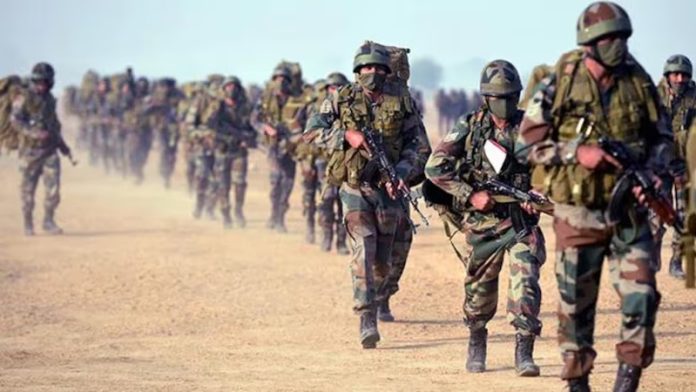The recent upsurge in terrorist activities in Jammu and Kashmir has necessitated a robust and multifaceted response from the region’s security apparatus. The JKP, in collaboration with various other agencies, has rolled out a series of comprehensive measures aimed at curbing the menace of terrorism. These efforts, encompassing legal, operational, and technological dimensions, reflect a determined approach to ensuring peace and stability in the region.
One of the most significant legal measures recently considered is the invocation of the Enemy Agents Act. The Act, which carries a minimum sentence of life imprisonment and can extend to the death penalty, is intended to act as a strong deterrent against local collaborators. This move underscores the gravity with which the state views any form of support for terrorism and signals a no-tolerance policy towards such acts. Additionally, the UAPA continues to be a key legislative tool in the fight against terrorism. It provides the legal framework to detain individuals suspected of terrorist activities, thereby preventing potential threats. The proposed establishment of special courts for trials under these stringent laws aims to expedite the judicial process, ensuring swift and decisive action against those involved in terrorism.
Operationally, the JKP has intensified its counter-terrorism strategies. Following the terror attack in Hiranagar, the investigations were handed over to the SIA, highlighting the importance of specialised units in handling complex cases. The SIA, equipped with the necessary expertise and resources, is expected to delve deep into the conspiracies and networks behind such attacks. The collaboration between the JKP and Central Forces is another critical aspect of the operational strategy. Regular joint operations, intelligence sharing, and coordinated tactical responses have been pivotal in effectively neutralising terrorist threats. Moreover, the NIA has been entrusted with probing significant terror attacks, such as the Reasi attack. The NIA’s involvement brings a higher level of investigation proficiency, particularly in uncovering intricate terrorist networks and financial links. The agency’s national jurisdiction allows it to pursue leads beyond regional boundaries, making it a formidable force against terrorism.
In the contemporary era, the role of technology in both facilitating and countering terrorism cannot be overstated. It is being exploited by Pakistani handlers to coordinate attacks and smuggle weapons. To counter this, the JKP has ramped up their cyber capabilities by establishing cyber police stations in all 20 revenue districts and three police districts of the UT. These cyber police stations are tasked with tackling a broad spectrum of cyber crimes, from financial fraud to online radicalization and the coordination of terrorist activities. The police have recognised that 75% of the terrorism-related challenges are linked to cyberspace, necessitating a robust cyber-security framework. By monitoring suspicious online activities and intercepting communications, the cyber units aim to disrupt terrorist operations before they materialise into real-world threats. Additionally, there is an increasing focus on training law enforcement personnel in advanced cyber techniques and digital forensics. This training is crucial for staying ahead of technologically savvy terrorists who use encrypted communication platforms and other sophisticated methods to evade detection.
An essential element in the fight against terrorism is community engagement. The police and security forces recognise that winning the trust and support of the local population is vital for sustained success. Initiatives such as community policing, awareness programmes, and regular interactions with community leaders are designed to build a rapport with the local population. These efforts aim to foster a collaborative environment where citizens feel empowered to report suspicious activities and contribute to the security of their region. Developmental programmes, educational initiatives, and employment opportunities are being promoted to provide alternatives to the youth, steering them away from the path of extremism. The recent measures adopted by the Jammu and Kashmir Police and other agencies reflect a comprehensive and adaptive approach to countering the surge in terrorism. While challenges remain, the unwavering commitment to peace and stability in the region is evident.
Trending Now
E-Paper


